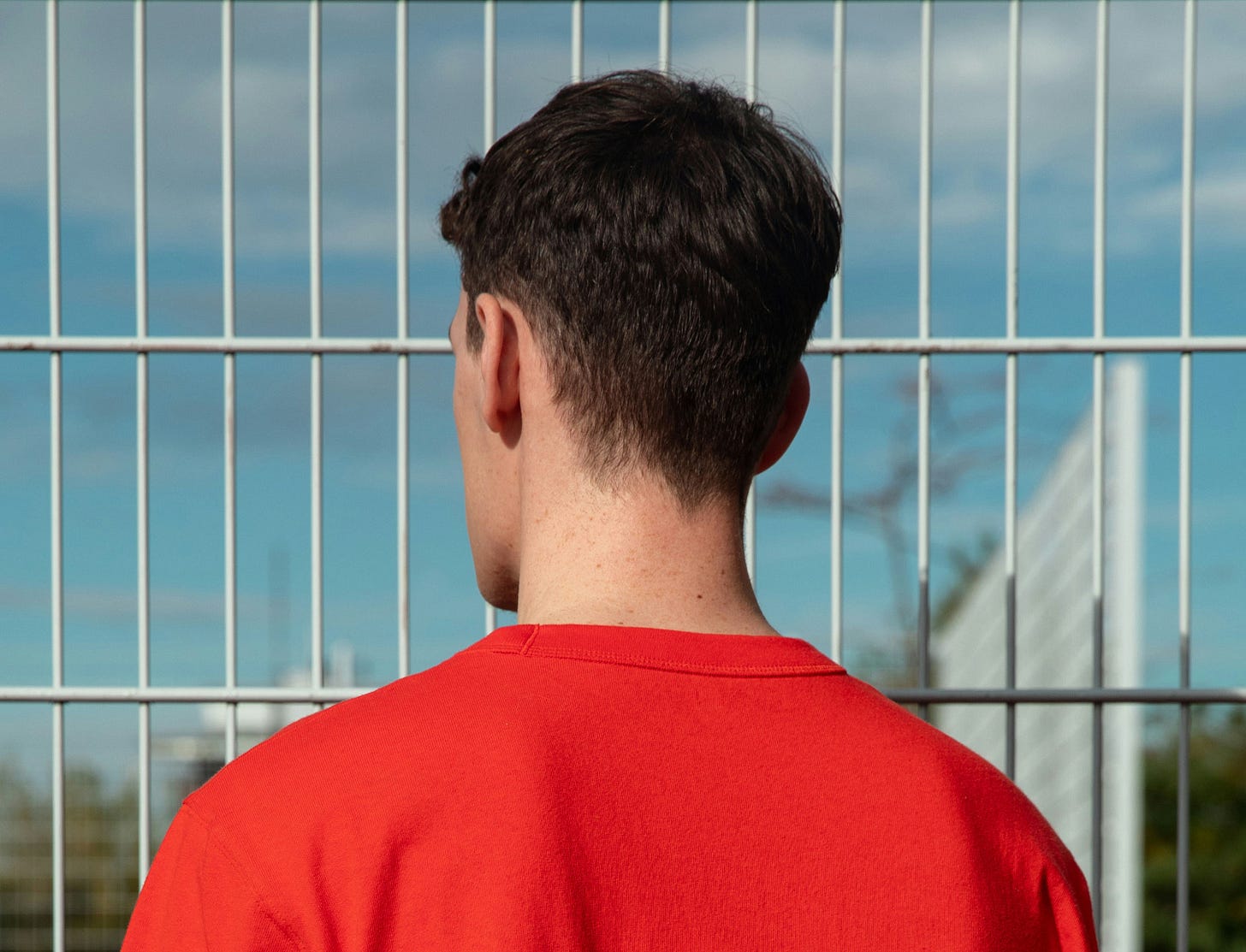The other side of the fence
Your enemy is God's gift to you: Part 2 — meeting others outside our own social experience
Welcome to new subscribers! Here’s some additional thoughts on our most recent post, ‘Your enemy is God’s gift to you’ — where our guest writer David Benjamin Blower takes a bit of a more personal and specific look at the UK landscape. Feel free to share your own thoughts in the comments — we’d love to hear from you.
A number of you have pledged to support this Substack, which we deeply appreciate. We’ll soon be launching a paid tier, to make good on those pledges. Our writing here will remain open to everyone, but your support is a huge encouragement and we don’t take it for granted.
Next week we wrap up this series on St Paul of the Cross, but we have more reflections on the way, as well as the new Passio print edition in late October, which we promise is a barnstormer. Thankyou, again, for reading!

Part 10 of our series with David Benjamin Blower: Notes on Poverty, Death and Nothingness, exploring the writings of St Paul of the Cross
The UK is presently trying not to think about how many people voted for the Far-Right political party Reform in the recent general election. Even though the centre-ish (shall we say…?) Labour party won 412 seats and Reform only won 6, the voting figures tell another story: Labour won 9.7 million votes, while Reform won 4.1 million.
In the last 10 years, nationalism has become a prominent political force across Western countries, and this is the biggest Far-Right vote in the UK over that time. Some have suggested that Reform will overtake the Conservatives and become the main opposition party after the next election.
Naturally, memes, milkshakes and all kinds of munitions are being thrown at Reform’s charismatic leader, Nigel Farage.
Here’s a thought experiment, in two parts.
First, let’s say that Nigel Farage is not a real person. Neither is Donald Trump, or Kamala Harris or Keir Starmer. They're more like avatars, or actors in a play. I know they all wake up in the morning as real people, living in those bodies, conducting real relationships with whoever does life with them, but I doubt I will ever encounter those people. I will only ever see figureheads playing some part on a stage of power, mediated to me through various outlets and filters.
Secondly, in some ways, they who play such roles are not quite as important as we make them. The world hasn't swung to the right because Nigel Farage and Donald Trump appeared. They appeared because the world had swung to the right. If they had not appeared, others would have popped up to play some similar role. There is no shortage of possible puppets for the kinds of power at work in the world.
The thought experiment then plays out something like this: Firstly, it means the Nigel Farage I encounter is not a real person that I can hate or love or forgive, or what have you. It also means that little would change if Nigel Farage were to have some Damascus Road conversion (though I wish all good things upon the person who gets up in the morning to play the role of Nigel Farage). Some other figurehead would just fill the role.
What then? Well, then the sphere of real things and real people is shifted a little. If I avert my gaze for a moment from the arresting spectacle of the leaders being mediated to me, I find that the real questions lie less with Nigel Farage, and more with 4 million people who I don’t know. But crucially, they are real people. If Nigel Farage were to disappear, they, with their views, experiences, and discontents, would still be there. Certainly, the 4 million people who voted for Reform won’t be dissuaded by liberals who make memes about them and call them stupid. Those people are preaching to the choir.
If you can’t listen to the pain that caused the troubling choices of another, then nothing new will happen, and nothing you say will matter to them. If you cannot understand another person's choices, then you are presented with an opportunity to discover something beyond the boundaries of your own experiences. You have been presented with the opportunity to listen to someone whose life has been conditioned by an entirely different set of terms. What fears conditioned their vision and perspective? And why would they defer to your vision of things if you know very little about their world? Why would they lean in to understand you, if they don't feel listened to or understood?
The starting point is not found among moralising judgments, intellectual arguments, or memes that demolish in five seconds. It begins by seeking to understand why someone is doing what they are doing. If this why lies outside of one’s own social experience, then there is some journey of discovery ahead.
I am reminded of something the theologian Ched Myers once said: “hope is where your ass is…” (as in “arse”). Meaning, I think, that in the end, opinions are cheap. What really matters is where you are willing to place your physical body in order to encounter the lived experience of someone else, someone different.
The infrastructure for having opinions and sharing them is all so available today. The infrastructure for going and encountering the life of someone very other is very spare indeed. In fact, a great deal of infrastructure exists to prevent such encounters from ever occurring at all. To seek hope through encounter means going back to the beginning and finding paths that barely exist, or perhaps making them from nothing. Slow, awkward, clunky, dangerous, joyous: such is the road toward new and more beautiful possibilities.





